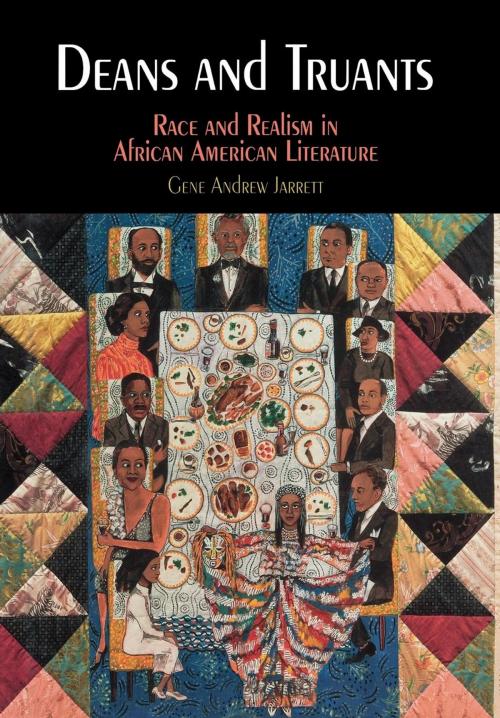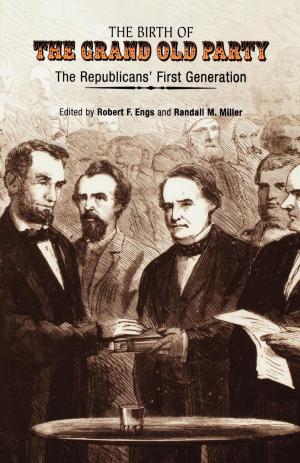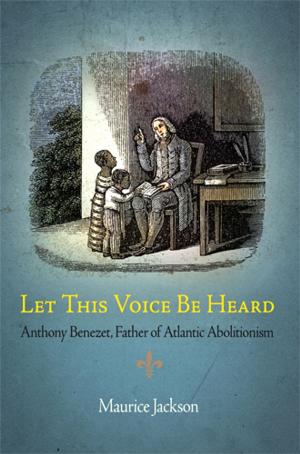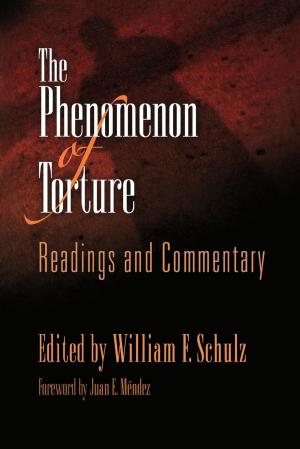Deans and Truants
Race and Realism in African American Literature
Fiction & Literature, Literary Theory & Criticism, Black, American| Author: | Gene Andrew Jarrett | ISBN: | 9780812202359 |
| Publisher: | University of Pennsylvania Press, Inc. | Publication: | March 1, 2013 |
| Imprint: | University of Pennsylvania Press | Language: | English |
| Author: | Gene Andrew Jarrett |
| ISBN: | 9780812202359 |
| Publisher: | University of Pennsylvania Press, Inc. |
| Publication: | March 1, 2013 |
| Imprint: | University of Pennsylvania Press |
| Language: | English |
For a work to be considered African American literature, does it need to focus on black characters or political themes? Must it represent these within a specific stylistic range? Or is it enough for the author to be identified as African American? In Deans and Truants, Gene Andrew Jarrett traces the shifting definitions of African American literature and the authors who wrote beyond those boundaries at the cost of critical dismissal and, at times, obscurity. From the late nineteenth century to the end of the twentieth, de facto deans—critics and authors as different as William Howells, Alain Locke, Richard Wright, and Amiri Baraka—prescribed the shifting parameters of realism and racial subject matter appropriate to authentic African American literature, while truant authors such as Paul Laurence Dunbar, George S. Schuyler, Frank Yerby, and Toni Morrison—perhaps the most celebrated African American author of the twentieth century—wrote literature anomalous to those standards.
Jarrett explores the issues at stake when Howells, the "Dean of American Letters," argues in 1896 that only Dunbar's "entirely black verse," written in dialect, "would succeed." Three decades later, Locke, the cultural arbiter of the Harlem Renaissance, stands in contrast to Schuyler, a journalist and novelist who questions the existence of a peculiarly black or "New Negro" art. Next, Wright's 1937 blueprint for African American writing sets the terms of the Chicago Renaissance, but Yerby's version of historical romance approaches race and realism in alternative literary ways. Finally, Deans and Truants measures the gravitational pull of the late 1960s Black Aesthetic in Baraka's editorial silence on Toni Morrison's first and only short story, "Recitatif."
Drawing from a wealth of biographical, historical, and literary sources, Deans and Truants describes the changing notions of race, politics, and gender that framed and were framed by the authors and critics of African American culture for more than a century.
For a work to be considered African American literature, does it need to focus on black characters or political themes? Must it represent these within a specific stylistic range? Or is it enough for the author to be identified as African American? In Deans and Truants, Gene Andrew Jarrett traces the shifting definitions of African American literature and the authors who wrote beyond those boundaries at the cost of critical dismissal and, at times, obscurity. From the late nineteenth century to the end of the twentieth, de facto deans—critics and authors as different as William Howells, Alain Locke, Richard Wright, and Amiri Baraka—prescribed the shifting parameters of realism and racial subject matter appropriate to authentic African American literature, while truant authors such as Paul Laurence Dunbar, George S. Schuyler, Frank Yerby, and Toni Morrison—perhaps the most celebrated African American author of the twentieth century—wrote literature anomalous to those standards.
Jarrett explores the issues at stake when Howells, the "Dean of American Letters," argues in 1896 that only Dunbar's "entirely black verse," written in dialect, "would succeed." Three decades later, Locke, the cultural arbiter of the Harlem Renaissance, stands in contrast to Schuyler, a journalist and novelist who questions the existence of a peculiarly black or "New Negro" art. Next, Wright's 1937 blueprint for African American writing sets the terms of the Chicago Renaissance, but Yerby's version of historical romance approaches race and realism in alternative literary ways. Finally, Deans and Truants measures the gravitational pull of the late 1960s Black Aesthetic in Baraka's editorial silence on Toni Morrison's first and only short story, "Recitatif."
Drawing from a wealth of biographical, historical, and literary sources, Deans and Truants describes the changing notions of race, politics, and gender that framed and were framed by the authors and critics of African American culture for more than a century.















